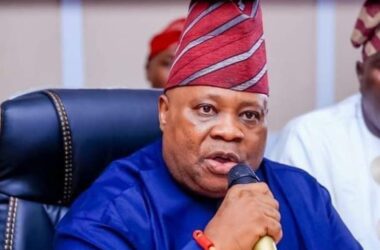The Management of Niger Delta Power Holding Company (NDPHC) has raised concerns over the growing financial burden on the firm due to unpaid electricity debts totaling nearly N600 billion. According to the company, the Nigeria Bulk Electricity Trading Plc (NBET) and several other bilateral partners owe the sum, severely affecting its ability to function effectively.
In a recent statement by Jennifer Adighije, the Managing Director of NDPHC, the company explained that this massive debt, along with ongoing issues such as poor gas supply, transmission problems, and low demand from distribution companies, is contributing to a stranded power generation capacity of about 2,000 megawatts.
“NDPHC currently has a mechanically available generation capacity of about 2,000MW that is significantly stranded due to transmission constraints, gas supply, and gas transportation limitations in addition to dwindling offtake by the distribution companies,” Adighije said.
She revealed that the new management has successfully revived five turbine units at the Calabar, Omotosho, Sapele, and Ihovbor power stations, adding around 625MW to the national grid. However, she noted that these efforts are being undermined by limited grid capacity and poor payment systems.
The National Integrated Power Projects (NIPP), managed by NDPHC, have long provided key support to grid stability. But Adighije noted that the system operator continues to use the plants for vital services like frequency control without compensating the company.
“Over the years, the NIPP plants are utilised by the system operator to carry out primary frequency response, enabling power grid stability. These ancillary services ought to be monetised in line with the grid code and industry regulations…”
She also pointed out that Alaoji Power Plant, inactive due to a gas metering dispute, is expected to resume operations before year-end. Steps have already been taken to restore the gas metering station and resolve the issue.
Despite available generation capacity, NDPHC is reportedly placed low in the dispatch priority order, leading to underutilisation of its infrastructure. “Currently, NDPHC is placed in the least priority bucket for dispatch in spite of its available daily dispatch capacity of about 2,000MW,” she noted.
According to her, the company is now exploring bilateral agreements and direct sales to eligible customers as part of a strategy to commercialise stranded power. These moves are in line with the Nigerian Electricity Regulatory Commission’s recent directive permitting generation companies to enter into such agreements.
She added that NDPHC has invested more than N500 billion in transmission infrastructure over the years, including substations, transformers, and transmission lines now managed by the Transmission Company of Nigeria.
Meanwhile, data from the Nigerian Electricity Regulatory Commission shows that many NDPHC-operated plants are producing far below capacity. For example, Olorunsogo 2, with a 750MW installed capacity, generated only 24MW in April. Others, like Alaoji 1, have produced no power for months.
Despite these setbacks, Adighije reaffirmed the company’s determination to unlock its stranded energy by prioritising eligible customers and off-takers, hoping to eventually reduce its financial losses and contribute more effectively to national electricity supply.









